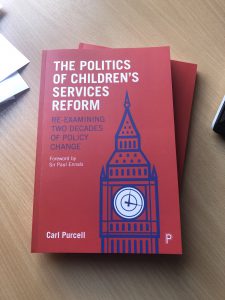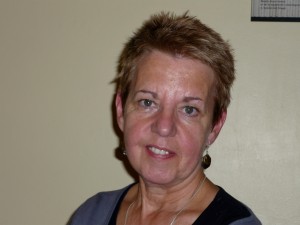 Dr Carl Purcell, NIHR Health and Social Care Workforce Research Unit, King’s College London. His book, The Politics of Children’s Services Reform: Re-examining Two Decades of Policy Change, is just out. (849 words)
Dr Carl Purcell, NIHR Health and Social Care Workforce Research Unit, King’s College London. His book, The Politics of Children’s Services Reform: Re-examining Two Decades of Policy Change, is just out. (849 words)
As we emerge from the current crisis, we must rethink how we resource and deliver child and family welfare services. The incredible contribution made by everybody working in the NHS is now widely appreciated. But we must remember that there are many others working to protect the most vulnerable in our society who also deserve our recognition. Furthermore, as we move, tentatively, towards easing the lockdown the skills, knowledge and dedication of teachers, childcare workers and social workers, to name just a few, will be vital to ensuring that we are able to identify and support the most vulnerable children and families.
 However, as we place greater demands on schools, local authorities and a vast array of voluntary sector agencies we must recognise that before the current crisis our child and family welfare system was already under significant strain. In my new book I reflect upon recent national policy developments to help explain how we arrived in this position. As we chart a way forward, three aspects of the contemporary system need to be addressed.
However, as we place greater demands on schools, local authorities and a vast array of voluntary sector agencies we must recognise that before the current crisis our child and family welfare system was already under significant strain. In my new book I reflect upon recent national policy developments to help explain how we arrived in this position. As we chart a way forward, three aspects of the contemporary system need to be addressed.
First, we need to reconsider the extent to which, and how, we provide financial assistance to those who need it most. Since 2010 welfare payments and tax breaks offered to the poorest families have been reduced or withdrawn. Progress made in reducing child poverty over the preceding decade has been reversed, with over 4 million children now living in poverty, many of them in working households (Joseph Rowntree Foundation, 2018). Moreover, the current crisis has demonstrated how precarious and insecure many people’s jobs are, and we have seen record increases in benefit claims. Many more families have been pushed beneath the poverty line. Continue reading

 Richard Griffin MBE,Visiting Senior Research Fellow, King’s Business School, today begins a series of guest posts on the healthcare workforce. He argues that, in the face of the widely acknowledged problem of shortages in this workforce, we should turn to current NHS support staff for part of the solution. (477 words)
Richard Griffin MBE,Visiting Senior Research Fellow, King’s Business School, today begins a series of guest posts on the healthcare workforce. He argues that, in the face of the widely acknowledged problem of shortages in this workforce, we should turn to current NHS support staff for part of the solution. (477 words)


